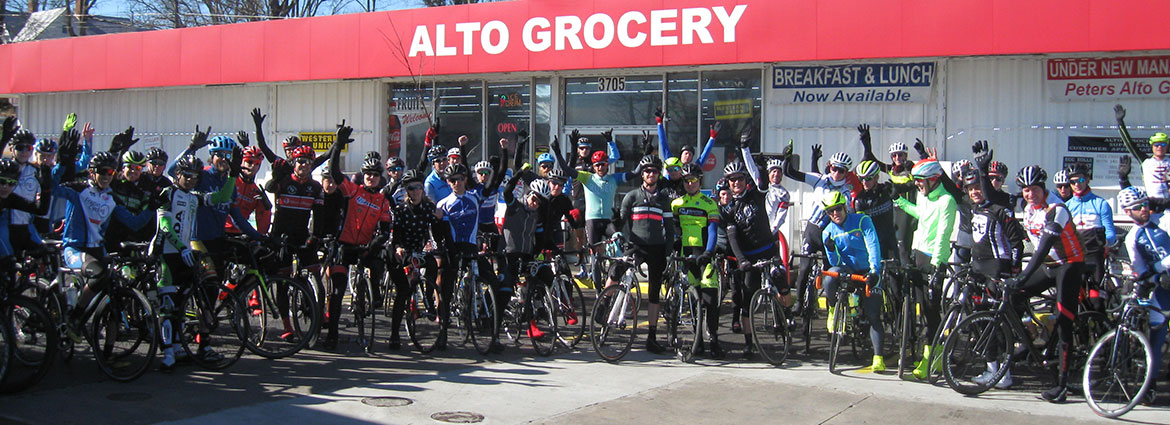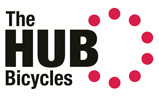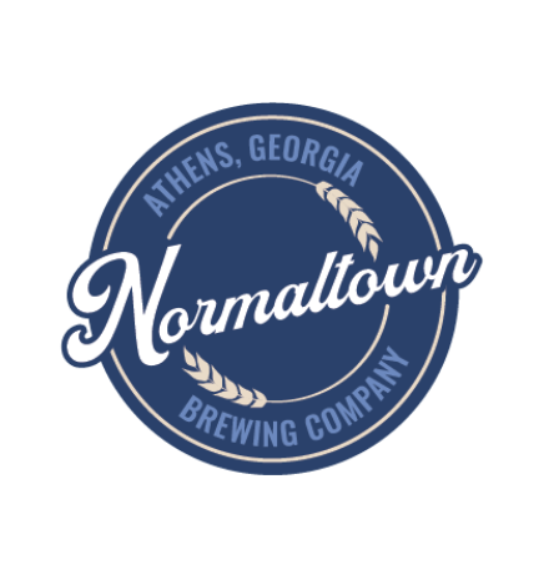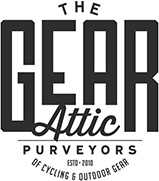TINA MAYOLA PIC
Talking with Tina Mayola Pic
(Installment # 1)
Tina Mayola Pic, aka the Dahlonega Dominatrix*, is not only a WBL legend as well as a longtime member of its hallowed Hall of Fame, but she’s also been the dominant force in ladies cycling in the U.S. for the past two-and-a-half decades. Tina started winning races in the professional ranks about 25 years ago and has never slowed down, and other than one brief mid-period pause in her career, she has defied both logic and time by growing stronger with each passing year. At this point, she’s one of the most respected riders in the U.S., male or female, not just because of her long, long list of heady accomplishments, but also because she’s remained humble and gracious throughout, two qualities all exceptional leaders possess. Tina lived in and around Athens in the early days of the WBL and was a regular attendee for many years, tallying 6 wins from 2001 through 2012, which places her in 6th place currently in WBL Total Wins. During Tina’s time in Athens, those of us here witnessed a diamond in the rough transform into a fully polished gemstone as she metamorphosed into a fundamental force of nature with a devastating finishing kick. Tina also had the ability to get over big hills on hard courses with the front group, so she was dangerous in both road races and criteriums, and as she gained experience, tactical know-how and savvy, she began winning races, a lot of races. Tina has not only won the U.S. Professional Criterium Championships a record-smashing 6 times (2002-2005, 2007, 2009) and the Athens Twilight Criterium on 3 occasions (2004, 2014, 2015), she’s won nearly every other major U.S. criterium and has finished the season several times as the number 1 ranked female cyclist. Tina has wins at such iconic races as Sommerville, Manhattan Beach, Superweek, Gastown, Redlands, Tour de ‘Toona, Tour of Montreal, McLane-Pacific, Clarendon Cup, Sunny King, Chris Thater, Nature Valley, Fitchburg-Longsjo, Mount Hood, Roswell, and on and on and on. Pack hierarchy in cycling is founded upon principles of meritocracy, which is why Tina is on top. Tina and her husband Chris now live in Gainesville, Georgia (see Chris Pic interview) and we checked in with her recently.
Humble Chronicler: Hi Tina, it’s great to check in with you and I hope you are great. Chris already updated us about you guys in his interview so let’s skip the intro and go directly to what everyone wants to know: Covid derailed your race plans last year so what about this year, will you give it a go?
Tina (DD): Hello, it’s great to check in with all my friends at the WBL, and I hope everyone is great! Yes, as a matter of fact, I am excited I will be racing this year (2021). Because Covid shut us down during the 2020 season, our sponsorship was extended for another year, so I’ll be racing for Colavita/HelloFresh and we’ll be focusing on the USA Crits. Here we go!
H.C.: That’s fantastic news and your tremendous career continues! Can you tell everyone the span of your racing career and the teams did you race for?
D.D.: I started racing in 1994 with the University of Georgia Cycling team. I “retired" after the 2009 season but was pulled back into the sport when I jumped into a crit in Boise in 2012 and I have been racing since then. Some of the teams I raced for were sponsored by Colavita for many years, Powerbar, Celestial Seasonings, Autotrader.com, Diet Rite, Genesis Scuba, Quark, DNA, Fearless Femme, Pepper Palace, Happy Tooth, Papa Johns, Cavaliere D’Or and HelloFresh.
H.C.: That’s an impressive assortment of strong teams. What type of race did you enjoy the most and what type of terrain suited your strengths?
D.D.: I started out as more of a road racer and time trialist - I could not sprint my way out of a paper bag – but now I can’t time trial. [Editor’s interlude: The last statement cannot be taken at face value.] I think the better I became at sprinting the more my time trialing suffered - maybe I forgot how to properly pace myself. Over time, I developed a love for the fast crits and did better on courses featuring a short, sharp hill or two. I’m not a climber by any means but the hillier crits suit my strengths a little better than some of the other fast ladies.
H.C.: How and when were you introduced to cycling? Did you participate in other sports first?
D.D.: I grew up outside Washington, DC in Alexandria, Virginia and I played soccer throughout high school. During college at the University of Virginia, while I was in Hilton Head during the summer, I started riding triathlons, but soon realized I wasn’t the best swimmer, so I switched to duathlons. After earning a degree in finance and marketing at UVA, I went back to school in Athens at the University of Georgia with plans to work towards a medical degree. One day while I was running in Athens, I saw some of the riders from the UGA cycling team ride by and the seed was planted. I tracked the team down, quickly joined, and my life in cycling began.
H.C.: You won your first WBL ride 20 years ago in 2001 and your sixth 11 years later in 2012. What do you remember about your first WBL rides back in its infancy and who were some of the other riders at the time?
D.D.: There were no GPS maps and no cell phones at the beginning, just Crowe bellowing out directions as we went. I rarely knew where we were, and I never knew where we were going or exactly how long the ride was, so my ability to hang on was motivated in large part by fear. It wasn’t unusual to hear a story of someone riding home in the dark after being shelled somewhere out in the remote hinterland, but thankfully I was able to avoid that type of torture. I remember on one of my early rides we ended up on a dirt road, obviously lost, and Crowe asked if anyone knew where we were, which is never a good sign. Chris [Pic] said, “Oh yeah, I know this road, we are close to my parents’ house.” Mind you, we’d already ridden 70 miles and the Pic’s home was in Gwinnett County and at least 40 miles from Athens as the crow flies. Several curse words were uttered at that point by a few dozen folks. Also, there were no “Attack Zones” at that time, just a finishing sprint, so you never knew exactly when someone might drop the hammer approaching the finish of a ride. And back then we were sprinting for a case of beer or free coffee. There are so many others but a few are Chris Pic (of course), Jason Spruell, Dave Allen, Jeff Lee, Bill Oyster, Eric Lemaire, Tim Mullins, Nat Dunn, Todd Pardoll, Clayton Matthews, Steve Sevener, Dave Allen, Jonas Tenney, Ben Eicholtz, Maggie Shirley, Canada Pam, Canada Dave, Clay Parks, Iona Wynter, Leigh Hopkins, Dani Dembrak, Bill Riecke, Bill Davis, Mark Heeb, Heidi Yakowski, Aaron Miller, Erin Winters, Jeff Shirey, Doc Moye and Dirty D, Darryl Prillaman.
H.C.: You’ve had more wins in the professional ranks than any other rider I am aware of, male or female, in the current era. I’m sure they are difficult if not impossible to rank, but what do you consider some of your most special results?
D.D.: The special results and moments are not always the wins but winning the Athens Twilight three times is near the top because of my connections to Athens as well as the fact it’s such a hard but fantastic race. The Athens Twilight was one of the harder races I did because it’s so fast to begin with, but also because I put a lot of pressure on myself to win knowing a lot of friends are always there cheering for me. Winning my 6th Professional Criterium National Championships in 2009 was also special because the entire team worked so hard for it and it was truly a team result. Winning the Gastown Crit in 2017 in Vancouver was special because my teammate, Christina Gokey-Smith, had an allergic reaction and one of her eyes was swollen shut, yet she somehow managed to survive and near the end of the race emerged from nowhere to give me one of the best lead-outs of my career. After the courage she’d shown, it was immensely satisfying to close the deal. Other races that I didn’t necessarily win but still proud of my results are second in a stage of the Giro, third in the New Zealand Cup, fourth in the Australian World Cup, and second in the San Francisco Grand Prix. But whether it was Athens or any other race, I never won any race without incredible teammates who sacrificed their own personal results for me.
H.C.: What is it about the races you mentioned you didn’t win that make them special?
D.D.: First they were all races with world class talent in the field and the Giro itself is such a special race with spectacular courses. Not to mention the food is amazing, as are the Italians. The world cup race in New Zealand was a classic also because we were immersed in such a different and interesting culture. Before each race, a group of Maori dancers performed a ceremonial haka dance, which involves the stamping of feet and rhythmic shouting—which is both fascinating and a little frightening. San Francisco is such a great city, and the hills in the San Francisco Grand Prix were so steep, it leveled the playing field between the climbers and the sprinters to a certain extent. The year I finished 2nd (2004), I was sick and I had to fight back from a mechanical that nearly derailed me, so I was really proud of my result in such a hard race.
H.C.: Let’s venture off the beaten tracks for a moment. Will you tell us a little about the time you were on a women’s team that competed in the men’s Tour of Jamaica?
D.D.: Yes, that’s correct, one year Iona Wynter convinced a group of ladies to enter the Tour of Jamaica, but we’d be racing in the men’s race: There would be one women’s team and the rest of the field were men. We also wondered at the time how this was going to go. We did have members of one male team helping us—Chris (Pic), Eric Murphy, Parks, Peter Hufnagel, a couple of others—but most others in the field were not happy with our presence. Throughout the race, the Jamaicans were pushing, throwing elbows, and chopping us in the sprints, not to mention some of the roads were riddled with massive, wheel eating-potholes we were also trying to avoid, so we had to stay on our toes. Eric Murphy was leading the race at one point and he flatted and I yelled out “Eric has flatted,” thinking the pack would slow. Instead, the Jamaicans to put the hammer down. Eric eventually caught back on after a hard chase and went on to win the Overall but I felt horrible and thought I’d lost the race for him. But after nearly causing a crash, and nearly causing a fight, we finished the race, and I think we earned finally earned most of the other riders’ respect.
H.C.: Tell me a little about your sprinting style and some of the teammates who helped you along the way?
D.D.: In the world of sprinters there are scrappy sprinters that can surf the front and go it alone, and there are other sprinters that rely on their teammates who help position them in the final laps and lead them out to the line. I fall in the latter category and have depended upon great teammates throughout my career. Candace Blickem is one of my great former teammates who immediately comes to mind. She was strong as an ox, always there, always working hard, always looking out for me, and consistently giving tremendous lead-outs. She was good at the details, small things like making sure I was eating because I was notoriously terrible at it. Tiff Cromwell is another great former teammate who comes to mind, an unbelievable talent. I can still hear her voice in my head with that sassy Aussie accent. Iona Wynter Parks was also another great teammate who comes to mind—how many teammates would push you up the Manayunk Wall? One time in Philly during the U.S. Pro Road Race I crashed on the final lap and stayed in the race but my hand was probably broken in addition to a handlebar issue. Approaching the Manayunk Wall for the last time I knew my race was over because I couldn’t stand so I wouldn’t get over the top with the front group. Iona came up beside me and put her hand on my back and pushed me up the hill, over the top, and back into the front group—it was an amazing display of strength. Sarah Ulmer was another great teammate who was super strong. She could do it all—she won the New Zealand World Cup with an unbelievable solo, and she won a Gold Medal on the track in the pursuit in the Athens Olympics. Suzy Pryde was another amazing teammate as well who was extremely talented—she broke her collarbone in the Athens Twilight right before the 96 Olympics in Atlanta and our very own Doc Moye [Dr. Daniel Moye] fixed her up. There are so many teammates who have helped me I could go on for a long time.
H.C.: You have raced against the strongest ladies in the world over the last two-and-a-half decades. Who are a few of the strongest ladies you have raced against?
D.D.: Wow, there are so many, and often times I’d catch glimpses of the strength someone may have before we knew how great they would become. Sarah Hammer was racing with us when she was young and she was a raw talent who went on to develop into a great rider. She led me out for the win at Roswell one year and I could barely hang onto her wheel. The German Ina-Yoko Teutenberg was such an amazing sprinter, one of the best, she could do it all. To win against her, which didn’t often happen, I’d have to catch her off-guard and go shockingly early, but she was difficult to beat. Another German, Petra Rossner, was an incredibly gifted road and track rider—in track she won both a gold medal and the world championship. Alison Powers was another amazing rider. In 2014 she performed the ridiculous feat of winning the U.S. National Championship in the Road Race, Time Trial and Criterium. She was also a top flight descender and could win races going downhill. We learned not to let her open a gap on a downhill or she would drop the entire pack and time trial away for the win. Anna Wilson from Australia was another rider who could do it all, time trial, sprinting, she had no weakness and won races of all types. I can remember her riding away from us to victory a long ways out one day in Idaho on an exceptionally hilly course, a feat the rest of us marveled at. I saw the Dutch rider Annemiek van Vleuten when she was young and just starting and though she was very strong, few of us would not have suspected she would become the amazing rider she has. Kristin Armstrong is another one of the strongest ladies I’ve raced against. I witnessed her strength firsthand one year in the Tour of Holland in the team time trial and knew she would be a phenom. She was young but basically pulled the entire team and we finished 6th—she’d done better without us! She went on to become one of the greatest time trialists in history and won three gold medals and several world championships over the course of an amazing career. Andrea Dvorak is another USA rider who was extremely talented. I saw her sit at the front in the Giro one year day after day, only growing stronger and stronger. Again, there are so many other strong ladies I raced with and against this is only a partial sampling.
H.C.: What’s one of the more comical things you’ve had happen at a race.
D.D.: Well, there have been a few, but we were racing at the Pan Am Championships in Mar Del Plata Argentina in 2005 and the day before the race we were all pre riding the course, which was an 8 mile circuit. The roads weren’t closed and there was a lot of traffic and our director, Mike Engleman, was following us in the team van. Laura Van Gilder and Brad Huff were on the front and suddenly and without any warning both of them suddenly hit the deck. Then another rider, Erin Mirabella, hit the deck. I started slipping and about half of us went down. We had no idea what had happened. Mike Engleman stopped the van and got out and started running towards us and then he started slipping and sliding and couldn’t keep both feet on the ground. Then we saw another riding coming towards us so we started yelling for her to slow down so she puts one foot down and tried to stop and down she went. Apparently, a restaurant had dumped a clear colored cooking oil on the road and in the end, about half the field went down pre-riding the course. After we’d gotten up and cleaned ourselves off we’d gone a couple hundred yards when suddenly this guy goes sprinting by us up the hill with the police in hot pursuit and the next thing we knew, shots were fired. We ducked for cover and ran and I’m not sure what happened but the whole episode came straight out of Laurel and Hardy.
H.C.: Have you ever been racing in a country when civil unrest has broken out?
D.D.: Yes, and it was frightening. A few years later we were back at the Pan Am Games but they were being held in Venezuela. Hugo Chavez was President at the time and there was a ton of social unrest and even right outside our hotel rooms there was a demonstration against his government. We thought the race might be cancelled but it went forward after all and we raced. Throughout the race, we had police escorts everywhere we went, which was a little unnerving. I remember at one point a generator blew at the track and the stands cleared instantly. There was just this ominous feeling hanging over the race that caused a sense of dread and fear because no one knew what was going to happen. The last night we were eating in a restaurant and some disturbance happened outside and tear gar was sprayed and it drifted into the location where we were eating. Our eyes and noses were burning as we were running back to the hotel and we heard what sounded like gunfire behind us. We were all scared for our lives and it drove home the point not to take for granted the basic rights I have in this country. It took a little while for the feeling of being nervous and jumpy to wear off.
H.C.: Before I let you go I have to know if a Superhero can ever be wrong—have you ever given bad tactical advice?
D.D.: The answer is a resounding “Yes!” Right before the Giro one year we raced the Tour of Trentino and there was a 10 kilometer climb only 2 miles in and we had to go up it two-and-a-half times. I was sorely mistaken about how the race was going to go down and told the other riders no one would attack the first time up the climb and to take it easy and rest. Oh, was I so wrong and the whole field shattered the first time up the climb and we were not where we should have been and complete panic set in and it took a bit to recover. Superheroes can also get lost—just ask Iona and Andrea Dvorak about the time we were lost in Italy trying to make it to a race. Good times!
H.C.: It was great chatting with you Tina and I am sure you have so many stories we could on a long time. In fact, let’s just call this piece “Installment Number 1.” I hope you and Chris have a great year and take no prisoners!
D.D.: Thanks, and it was great checking in and “Hello” to all the Zealots and all my friends. I can’t wait to get back down there in 2021!
Humble C
(Feb 2021)
*The sobriquet “Dahlonega Dominatrix” originated because at the time Tina was living in Dahlonega and dominating the field, nothing else, so get your mind out of the gutter.















